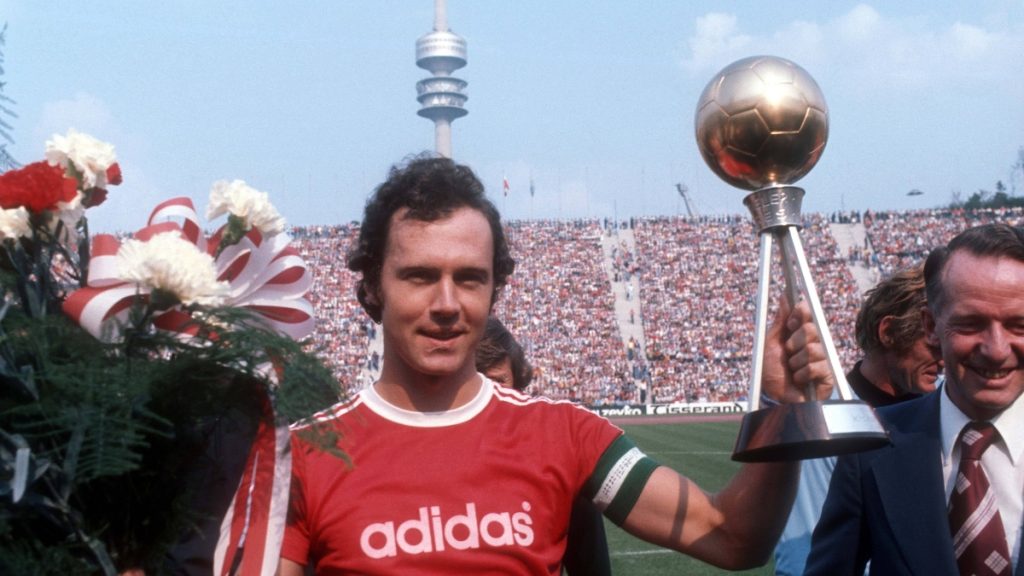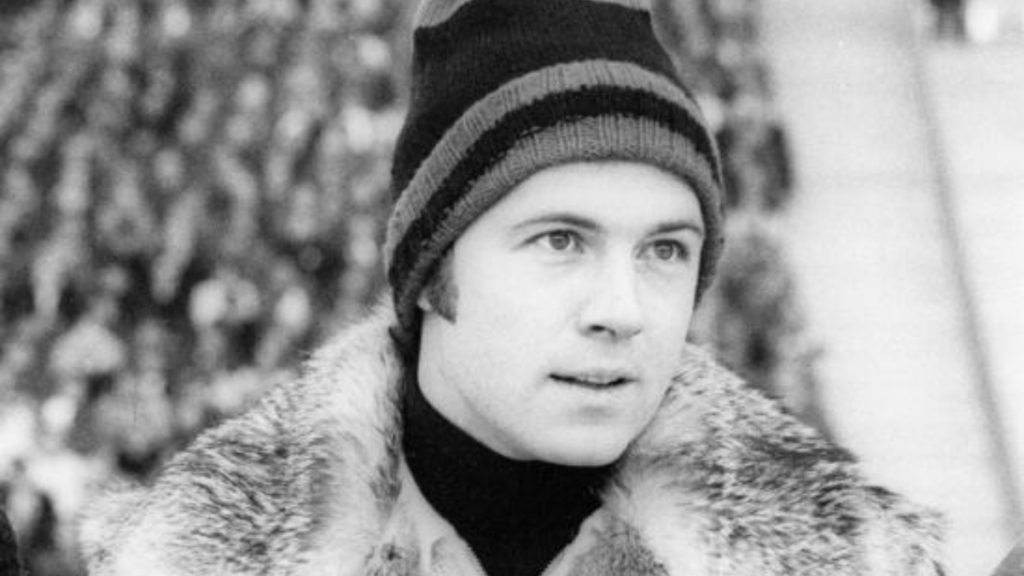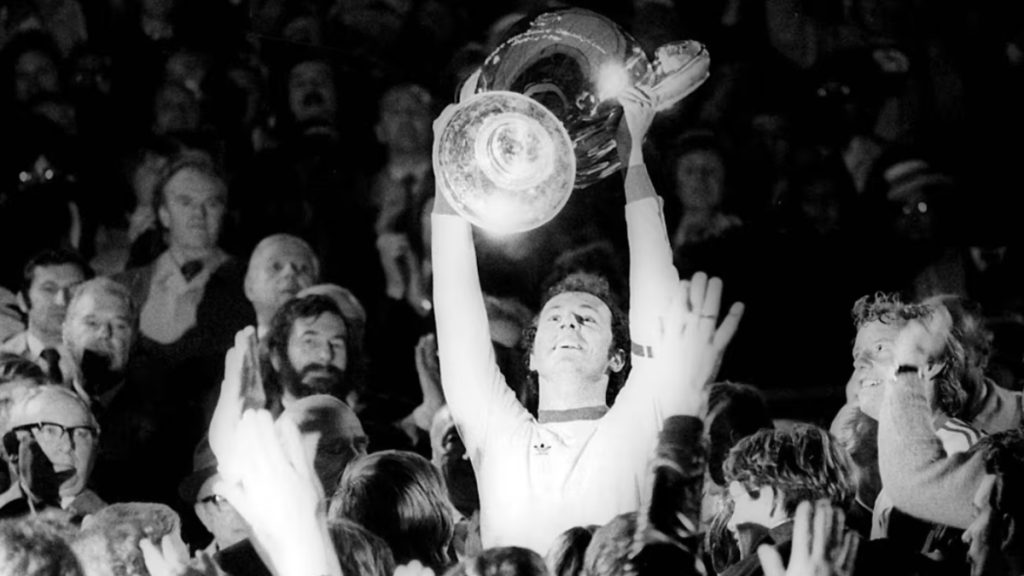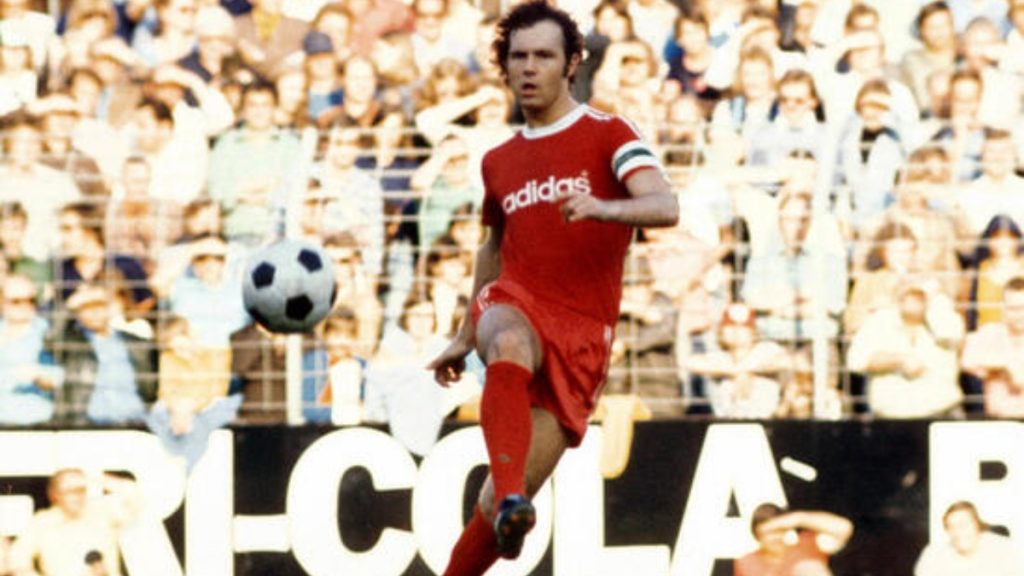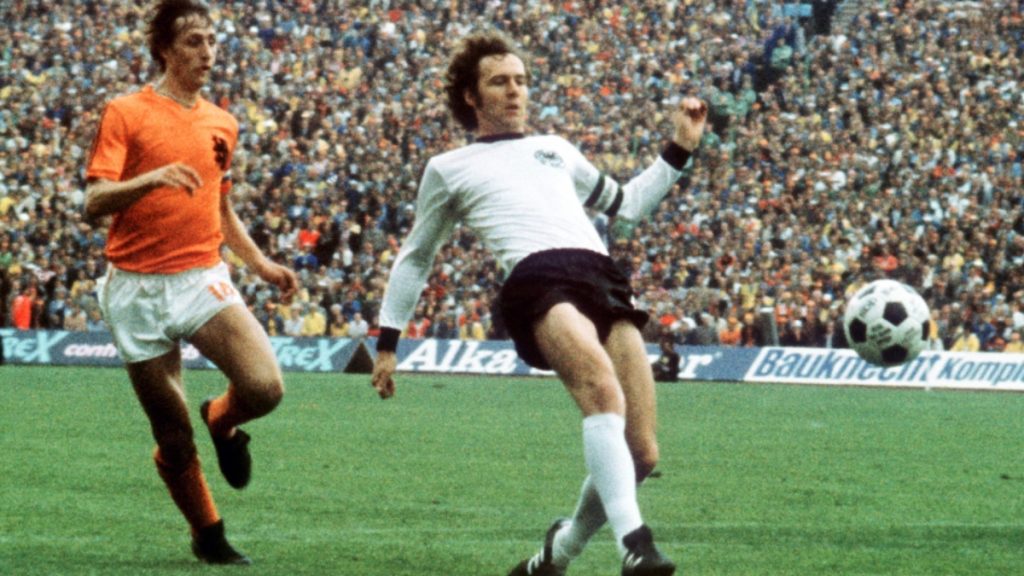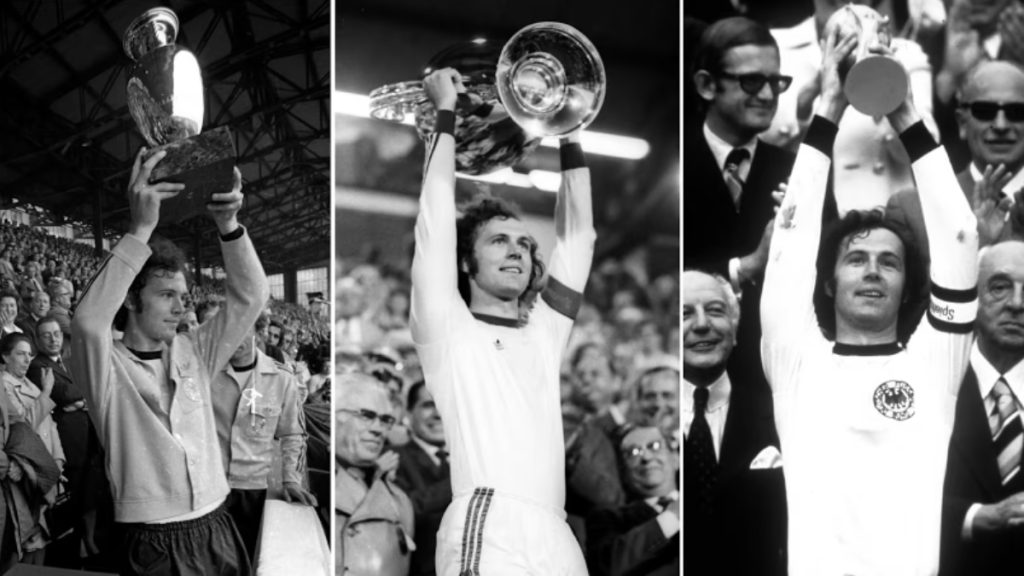Credit: Getty Images
In the realm of football, few names resonate as profoundly as Franz Beckenbauer. A legend whose impact transcends playing fields and touches the very essence of the beautiful game. From his humble beginnings in post-war Munich to his iconic role as a player, manager, and football visionary, Beckenbauer’s journey is an extraordinary tale of triumph, innovation, and enduring legacy.
Interesting Facts about Franz Beckenbauer’s Early Life
Born amidst the post-war ruins of Munich, Franz Beckenbauer spent his formative years in the working-class district of Giesing. His football journey began at the tender age of nine with the youth team of SC Munich ’06 in 1954. Initially a center forward, Beckenbauer looked up to Fritz Walter, the 1954 FIFA World Cup winner. However, fate took an unexpected turn in 1959 when Beckenbauer joined Bayern Munich’s youth team instead of his beloved 1860 Munich. This decision stemmed from a contentious Under-14 youth tournament in Neubiberg, where a clash between Beckenbauer and the opposing center-half during the final influenced his and his teammates’ choice to align with Bayern.
Credit: fussballmuseum.de
Franz Beckenbauer’s Professional Career
Bayern Munich
Beckenbauer marked his debut for Bayern in a Bundesliga promotion play-off against FC St. Pauli on 6 June 1964, showcasing his skills on the left wing. Under Beckenbauer’s leadership, Bayern Munich achieved a remarkable three consecutive league championships from 1972 to 1974. The club also secured a historic hat-trick of European Cup victories (1974-76), an accomplishment that granted them the privilege of permanently retaining the prestigious trophy. Beckenbauer’s influence during this era solidified Bayern’s place among football’s elite.
Credit: FCBayern.com
Later Career
In 1977, Beckenbauer joined the North American Soccer League (NASL) with the New York Cosmos, where he showcased his skills and contributed to the team’s triumphant Soccer Bowl victories in 1977, 1978, and 1980. He concluded his playing career with a two-year tenure at Hamburger SV in Germany from 1980 to 1982. Notably, he secured the Bundesliga title during his final year with the club. Beckenbauer then capped off his illustrious career with one last season back with the New York Cosmos in 1983. Throughout his remarkable journey, he graced the field in 754 competitive club matches, leaving an indelible mark on the sport.
The Invention of Der Kaiser
In 1968, Beckenbauer earned the nickname “Der Kaiser” from fans and the media, a title that would become synonymous with his legendary status. The story behind the moniker is often recounted. During a friendly game in Vienna, Austria, he posed for a photo session next to a bust of the former Austrian emperor Franz Joseph I. Following this, the media started calling him “Fußball-Kaiser” (football-emperor), which eventually evolved into the iconic “Der Kaiser.”
Credit: fussballmuseum.de
Franz Beckenbauer’s International Career
Beckenbauer, with 103 caps and 14 goals for West Germany, played a pivotal role in World Cup triumphs (1974), a runner-up (1966), and a third-place finish (1970). Additionally, he secured victory in the 1972 European Football Championship and finished as runners-up in 1976. Beckenbauer’s international journey commenced on 26 September 1965.
In the 1974 World Cup, under Beckenbauer’s leadership, West Germany achieved a remarkable victory. Beckenbauer played a pivotal role in guiding his side to success, notably in a hard-fought 2-1 triumph over the highly favored Netherlands, led by the iconic Johan Cruyff. This historic achievement also bestowed upon West Germany the unique distinction of being the first European national team to concurrently hold both the European Championship and World Cup titles.
Credit: Getty Images
Managerial Career
Upon his return to Germany, Beckenbauer assumed the managerial reins of the West Germany national team, leading them to the pinnacle of the 1986 World Cup. Beckenbauer etched his name in history as one of only three men to secure World Cup triumphs as both player and manager. His success extended to club management, where he achieved honors with Olympique de Marseille and Bayern Munich.
Franz Beckenbauer’s Legacy
Franz Beckenbauer is hailed as one of football’s all-time greats. Credited with pioneering the sweeper or libero role, he played a proactive defensive role in the team’s offense. Recognized as European Footballer of the Year twice, he earned a spot on the World Team of the 20th Century in 1998. His impact in the football history is undeniable.
Credit: FCBayern.com
Beckenbauer’s iconic status in Germany stems from his unique achievement of winning the World Cup both as a player and a manager. His integral role in Germany securing the host status for the 2006 World Cup garnered praise. However, his later career in administration faced challenges due to repeated bribery allegations, tarnishing his once-impeccable reputation.
Interesting Quotes about Franz Beckenbauer
- “Beckenbauer was one of the best I ever saw play.” – Pele
- “The most important thing he had was a fantastic vision.” – Sir Bobby Charlton
- “You’d have to say he was the perfect player.” – Karl-Henz Rommenigge
- “Franz Beckenbauer symbolizes football and a winning mentality. On top of that, he brought the World Cup to his own country. We’re proud of him.” – German tennis player Boris Becker
- “He’s the hero of our nation. It hasn’t happened by chance, he’s earned it by hard work.” – Gunter Netzer
- “I once saw Franz Beckenbauer enter a restaurant and he did it the same way he played football: with class and authority.” – Brian Clough
- “No one ever got past Franz.” – Gerd Muller
Franz Beckenbauer’s Personal Life
Franz Beckenbauer was born in Munich-Giesing in 1945. He had a successful career as a professional footballer and a manager. Beckenbauer was Catholic, married three times, and had five children. He was a golf enthusiast and also had a passion for philanthropy.
Conclusion
Franz Beckenbauer will always be remembered as a football legend, an icon who left an indelible mark on the sport. From his early days in Munich to his triumphs on the international stage, Beckenbauer’s impact on and off the pitch is unmatched. Despite controversies in his later years, his contributions to football remain important and his legacy will endure. The football world mourns the loss of a true Kaiser, a leader who paved the way for generations to come.
Frequently Asked Questions
Q: What is Franz Beckenbauer’s most significant achievement?
A: One of Franz Beckenbauer’s most significant achievements is winning the World Cup both as a player (1974) and a manager (1990). He is one of only three men to accomplish this feat.
Q: What was Franz Beckenbauer’s nickname?
A: Franz Beckenbauer earned the nickname “Der Kaiser” from fans and the media, a title that became synonymous with his legendary status.
Q: How did Franz Beckenbauer impact the game of football?
A: Franz Beckenbauer is credited with pioneering the sweeper or libero role, where he played a proactive defensive role in the team’s offense. He revolutionized the position and left a lasting impact on the game.
Q: What are some interesting quotes about Franz Beckenbauer?
A: Here are some interesting quotes about Franz Beckenbauer:
- “Beckenbauer was one of the best I ever saw play.” – Pele
- “The most important thing he had was a fantastic vision.” – Sir Bobby Charlton
- “You’d have to say he was the perfect player.” – Karl-Henz Rommenigge
- “Franz Beckenbauer symbolizes football and a winning mentality. On top of that, he brought the World Cup to his own country. We’re proud of him.” – German tennis player Boris Becker
- “He’s the hero of our nation. It hasn’t happened by chance, he’s earned it by hard work.” – Gunter Netzer
- “I once saw Franz Beckenbauer enter a restaurant and he did it the same way he played football: with class and authority.” – Brian Clough
- “No one ever got past Franz.” – Gerd Muller
Q: What is Franz Beckenbauer’s legacy in German football?
A: Franz Beckenbauer’s legacy in German football is immense. He is regarded as one of the country’s greatest footballers and his achievements as both a player and a manager have solidified his legendary status. He played a pivotal role in shaping German football and his impact will be remembered for generations to come.

